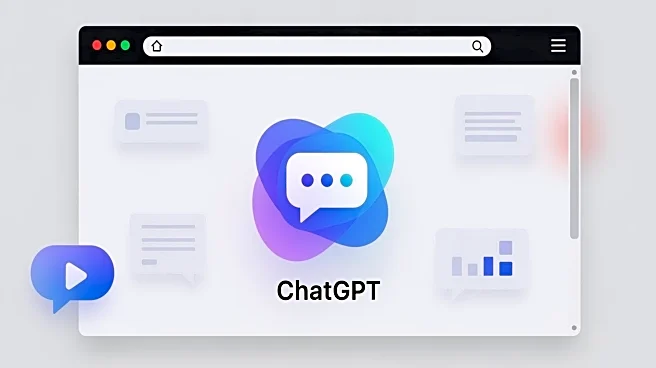What's Happening?
OpenAI has launched ChatGPT Atlas, an AI-powered browser that prioritizes ChatGPT integration over traditional web browsing features. The browser is currently available on macOS, with plans to expand to Windows,
iOS, and Android. Atlas aims to make ChatGPT the primary interface for search and answers, rather than relying on traditional search engines like Google. The browser's design emphasizes AI-driven interactions, with features like a writing assistant and memory capabilities that enhance user experience by providing context-aware responses.
Why It's Important?
The launch of ChatGPT Atlas represents a shift in how users interact with the web, as it emphasizes AI-driven search and task automation. This approach challenges the traditional dominance of search engines like Google, potentially altering the landscape of digital advertising and user data management. By integrating AI into the core of web browsing, OpenAI is setting a new standard for browser innovation, which could influence the development of similar technologies by competitors. The focus on AI also raises privacy concerns, as it involves new ways of collecting and managing user data.
What's Next?
As OpenAI expands Atlas to other platforms, the browser's impact on the market will become more apparent. Competitors may respond by enhancing their own browsers with AI features, leading to increased innovation and competition in the tech industry. Privacy advocates and regulatory bodies may scrutinize the browser's data management practices, potentially influencing future regulations. The success of Atlas could also drive further advancements in AI technology and its applications in web browsing and beyond.











